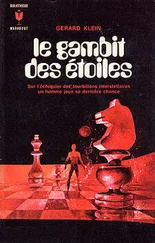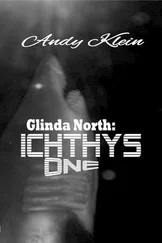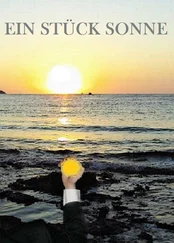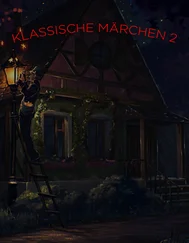Lee Klein - Jrzdvlz
Здесь есть возможность читать онлайн «Lee Klein - Jrzdvlz» весь текст электронной книги совершенно бесплатно (целиком полную версию без сокращений). В некоторых случаях можно слушать аудио, скачать через торрент в формате fb2 и присутствует краткое содержание. Город: Montclair, Год выпуска: 2017, ISBN: 2017, Издательство: Sagging Meniscus Press, Жанр: prose_magic, на английском языке. Описание произведения, (предисловие) а так же отзывы посетителей доступны на портале библиотеки ЛибКат.
- Название:Jrzdvlz
- Автор:
- Издательство:Sagging Meniscus Press
- Жанр:
- Год:2017
- Город:Montclair
- ISBN:978-1-944697-32-7
- Рейтинг книги:3 / 5. Голосов: 1
-
Избранное:Добавить в избранное
- Отзывы:
-
Ваша оценка:
- 60
- 1
- 2
- 3
- 4
- 5
Jrzdvlz: краткое содержание, описание и аннотация
Предлагаем к чтению аннотацию, описание, краткое содержание или предисловие (зависит от того, что написал сам автор книги «Jrzdvlz»). Если вы не нашли необходимую информацию о книге — напишите в комментариях, мы постараемся отыскать её.
Jrzdvlz — читать онлайн бесплатно полную книгу (весь текст) целиком
Ниже представлен текст книги, разбитый по страницам. Система сохранения места последней прочитанной страницы, позволяет с удобством читать онлайн бесплатно книгу «Jrzdvlz», без необходимости каждый раз заново искать на чём Вы остановились. Поставьте закладку, и сможете в любой момент перейти на страницу, на которой закончили чтение.
Интервал:
Закладка:
“Braddock and Vermeule and I, we could turn the city into an amphibious paradise. Or at least a place where citizens enjoy a functional, livable life, free of disease, so commoners perhaps have the health and energy to revolt. Now, how can they petition positive gain when even my last attempt to speak was met with yawns and exits so swift that before my brief speech was complete I was interrupted because quorum was no longer met. Perhaps I should not have prefaced my talk with commentary related to their idleness and accreted failures? Perhaps I should not have held them accountable for the toll on life and livelihood? Perhaps if I had flattered they would have heard me out. Or maybe coming from an elder respected worldwide, their pride was too great to withstand injurious words, to endure statements perhaps somewhat misconsidered, I now freely admit, related to their similarity to swine per the Book of Matthew? Perhaps such allusions had no role at this meeting? Perhaps they had heard how when sharing a platform with Theodore Roosevelt complaining of trusts and collusion I whispered loud enough for all to hear that greater men had been impeached for less seditious comment? Knowing this and other instances from a life of public appearance and private discussion misrepresented as rumor, perhaps the councilmen considered my reputation more than my proposal and the state of the city? Swine.
“Braddock and Vermeule and I, if a dozen years younger, thirty years younger, still in our firebrand prime, oh how we would have debated and demeaned them, let our arguments loose, amassed supporters, our enthusiasm for restoring the city’s original state so infectious we’d restore the place by running through the street, a golden burst of example by which all would right our shared problems one by one.
“But now we are old, I am old, tired, without the energy or capabilities to commit to pure water. We must attend to other industries, profitable ones, or else sink in the current depression of economy, city, and soul, never to emerge. This venture in the pines, my great folly.
“Franklin stood before the British as a diplomat, greatly ridiculed. He stored that poison in his heart, engaged Britain’s natural enemy in France, and took his revenge. Perhaps I will have the same fate, though by the time I avenge myself upon them we will all be gone.
“Does it matter if we players are no longer on stage? What matters is the stage is filthy, its conflicts unresolved, its state desperate, its solution unknown. I will include in my will language relating to desires for my lands to serve Philadelphia, enable its citizens to live no different from elected nobleman, those swine who rut and snort in troughs of luxury.
“Unornamented elegance in the pines, my retreat almost Spartan, reliant on woodwork, skilled labor, attentive carpentry, broad porches facing southwest, a widow’s walk overlooking the pines all around, ocean mists on clear days. But this house, other than chandeliers and silver and china bowls, needs nothing that might remove my family from the wilderness we cherish, the freshest air, a wholesome ambit from which man is not meant to live too far. When I speak of luxury I speak of avarice more than wealth. Ostentatious displays intended to reinforce in their owner a sense of pride in the accrual of items valuable to few. A man wallowing in filth and excrement, dying of thirst, if offered an amulet, what good is it? Every time he would choose water over extravagance.
“We sleep to the sound of the Mullica running through the mill, a quick fall where dammed waters reflect trees and skies, so spirit-restoring it must be shared with everyone, one day, and the waters beneath these lands must be shared now. My legacy, a lifetime of industry, a rejection of idleness—when I rest in the pines I refresh my energy for battle to come—a legacy I wish passed down after my death, which must come soon. These lands I want to serve the people who need them, either as water provider or sanctuary. How these lands have refreshed me time and again, and how I imagine they might support others the same. What I fear is misuse, development without responsibility by swine possessed of avarice instead of responsibility and foresight and universal burden to uphold best interests without sacrificing them in the name of profit. These lands should pass into the possession of those deserving, those who might drive out the swine who sully the city with snorts of self-concern. And if I do not die, I stake my immortality on restoration of the city’s original state. Let us hope I do not die until I see these resources unleashed, or that those who follow choose wisely, which I might add is an easy decision to discern: just ascertain the beliefs of those in power and take the opposite tack, for it is always right.”
That commitment to industry and abhorrence of idleness might make him wealthy, he had never doubted. Outlay of energy returned as profit or else he deemed it wasted. That such expenditure might sustain his presence on earth beyond his death, he had never hoped, and yet as death approached, the woods would remain in his name. The pines, despite towns wiped by fire, preserved legend better than cities where history was forgotten as lives dispersed across a continuous present. On the porch of the mansion among ancient trees and the Mullica River, the landscape appeared to him as it had to the first Europeans who had traveled there, the natives who had fished and tracked game, the more recent history of the acres themselves, the resort that failed to attract European aristocracy, offering no real luxury or impressive vistas to which idle souls could travel, summits paralleling their success, and from the widow’s walk all that could be seen for miles was wilderness interspersed with swamps and marshes and, in the distance, the sea, the sky. No place for aspirational aristocrats.
But Wharton had no need for an impressive landscape to encourage generous self-impression. He needed immersion in this land mistakenly called barren, undervalued by those unable to appreciate contorted pines and vines, scrub oaks, ink-black bogs clustered with lily pads, extra-green in contrast to sediment-rich waters elsewhere copper along the banks of turning streams, winding and twisting in a way no rational hand would ever plan.
Imagine the councilmen claiming authority over the pinelands and razing the forest, bricking it, rerouting Philadelphia’s rivers so they flowed to some newfangled treatment plant. Wharton had never doubted that slavery was existentially unfortunate, that the owners themselves had wished to end it, but also he had believed that all had been caught in their ways. Migration to the north of freed slaves he thought would be a boon if the cities were ready, not already overwhelmed by European rabble. Those formerly enslaved migrated north to work machines instead of fields, removed from African jungle to Southern plantations to Northern streets, with nowhere for their waste to run but into the drinking water. How long would it be until he fielded a proposal to route their sludge to the pines? How far off could it be? How long until some swine remembered Wharton’s insults and voted to pipe excrement to those scrappy lands to the east? How would he rebel against such a proposal, and if passed, how war against it?
Braddock and Vermeule, now almost elderly as well, might just sigh and let the world pass from achievable paradise to realm of living shit. Not too far off, Wharton thought, but how would these old men fight off a plan to pollute pristine lands if rational pathways were reversed, with purity flowing not to the pollution but pollution to the purity? And yet how could even one of the most successful industrialists of his age protect against swine possessed by avarice, self-interest, ignorance, evil? Was it possible to leave the dream of pure water behind? Is it possible to make them see just by closing his eyes?
Читать дальшеИнтервал:
Закладка:
Похожие книги на «Jrzdvlz»
Представляем Вашему вниманию похожие книги на «Jrzdvlz» списком для выбора. Мы отобрали схожую по названию и смыслу литературу в надежде предоставить читателям больше вариантов отыскать новые, интересные, ещё непрочитанные произведения.
Обсуждение, отзывы о книге «Jrzdvlz» и просто собственные мнения читателей. Оставьте ваши комментарии, напишите, что Вы думаете о произведении, его смысле или главных героях. Укажите что конкретно понравилось, а что нет, и почему Вы так считаете.












